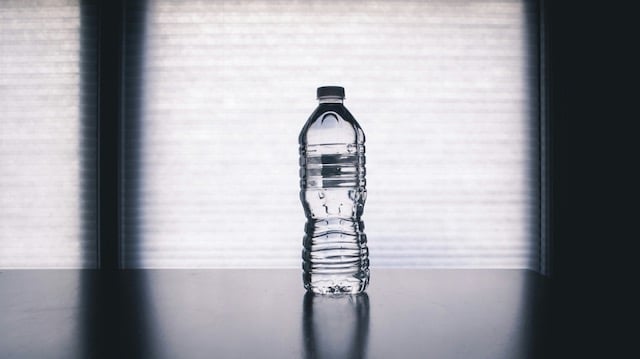Photo by Steve Johnson / Unsplash
When George Washington had a throat infection, his doctor did something that no doctor would ever do today. He let out a pint of blood from Washington’s body. A team of doctors let out more blood and Washington died three days later. That was called bloodletting and today we can be thankful that we live in a time where doctors have better knowledge on how to treat infections.
Could it be a century from now the chemicals we have allowed into our water and the air we breathe will be looked upon as bloodletting is today?
PFAS In Our Water
PFAS (per- and polyfluoroalkyl substances) are a class of toxic human-made chemicals in use since the 1950s – also called “forever chemicals” – that do not break down in the environment. According to researchers at URI, these chemicals have been linked to thyroid disease, low birth weight, cancer, and cardiovascular disease (see an EcoRI article HERE).
The Rhode Island PFAS in Drinking Water, Groundwater, and Surface Waters Act, updated last spring by the General Assembly, requires public water systems in Rhode Island to test for forever chemicals and sets an interim standard for PFAS in drinking water of 20 parts per trillion (ppt) for a total of six PFAS chemicals.
Most East Greenwich residents get their water from the Kent County Water Authority, which serves parts of Coventry, West Warwick, West Greenwich, and Warwick in addition to EG. According to Brian Kortz, EG’s representative on KCWA’s board of directors, there are “no water sources for KCWA that tested above 20 parts per trillion (ppt), and therefore, the R.I. Department of Health is not requiring any other actions by KCWA at this time.”
While that sounds like a good thing, the Environmental Protection Agency is expected to lower that amount to 4 parts per trillion possibly as soon as this year. Kortz shared a summary of the new rules HERE.
“The water authority’s goal is to be prepared for these future EPA regulations,” Kortz said, “and is currently seeking funding through the lawsuit and other grant opportunities and proceeding with the design of a treatment system to be constructed if and when it is needed.”
Kortz was referring to a lawsuit filed by the Town of North Kingstown against 3M, Dupont and other plastics companies. The companies recently settled a similar lawsuit with Stuart, Fla. and 300 other communities over contamination of drinking water. KCWA recently joined in the suit in hopes of receiving funds to update their facility to treat water for PFAS. KCWA expects to hear on the first ruling and settlement in 2024.
Well Water
Some EG residents live on well water. Director of Public Works Anthony Vaccaro said more than 3,700 residents get their water from KCWA, with only around 275 households on well water. Whether or not there are PFAs in well water depends on a variety of factors, including proximity to any industries that use or have used PFAS, including military bases.
The Rhode Island Department of Health has advice on how to test well water HERE. They also have an order form for various chemical tests; the PFAS test costs $200. That form can be found HERE.
It’s Not Just in Water
It turns out these chemicals are found in everything from water-resistant clothing, cosmetics, food packaging from restaurants, non-stick cookware, microwave popcorn bags and even firefighting foams.
East Greenwich Fire Chief Bernie Patenaude said PFAS chemicals in firefighting foam were switched out by the state in 2021. The label on the new foam containers now states, “No intentionally added PFAS, PFOA or PFOS.”
Other than that part about “forever,” PFAS chemicals work, which is why chemical companies have used them so widely over the decades. Some PFAS watchdogs (including STEEP out of URI) warn against complacency, suggesting that these companies could make relatively minor modifications to their formulations in order to skirt the PFAS prohibitions while still being able to use the technology.
An article in Consumer Reports recommends removing your food from takeout packaging and placing it in foil, glass or silicone which typically do not have PFAS chemicals. The longer your food stays in contact with takeout packaging, the more likely it is that PFAS will migrate into your food and heat causes the chemicals to leach into the food.
Looking to reduce your exposure to forever chemicals? Here are some suggestions:
- Drink from glass or stainless steel containers.
- Limit the amount of water you drink from plastic containers.
- Avoid nonstick cookware. Use stainless steel or cast iron for cooking. If you do use nonstick cookware, don’t use it if the non-stick surface is scratched.
- Use glass dishes or bowls to heat up your takeout food.
- Although more research is needed, some experts say donating blood may reduce the amount of PFAS. Find one study explaining this HERE.
- Avoid products with Goretex or Scotchgard coating.
- Avoid using microwave popcorn. Pop your own popcorn in a stainless steel popcorn container.
Use a water filter to reduce the chemicals in your water. The Environmental Working Group tested out some filters and their results can be found HERE.
Anthony Burnett-Testa is a teacher at Cole Middle School and writes about science and the environment for EG News.






 Subscribe
Subscribe
Good article. Good advice. Good job !
Great article! Thanks for the research.
Really great, informative article. Thank you
Great read. Thank you Anthony. Many people go for the “convenience” (myself included). However this article may help people stop and reconsider their best options.
Thank you for sharing this. I would highly recommend watching the documentary The Devil We Know. I believe it is available for free on YouTube. There is also a movie based upon the real life people that lived near Dupont. It’s called The Dark Waters. Both are really good.
Thank you for sharing your knowledge, rightly so.
The Supreme Court curbed EPA’s power to regulate carbon emissions from power plants. What comes next?
My thoughts started when I first learned of the Montreal Protocol through the Paris Agreement and possibly the fate of the “Chevron Deference” decision. The Latin phrase amici curiae seems pleasant, harmless but makes me think with the current composition of the Court Mephistopheles lurks somewhere.